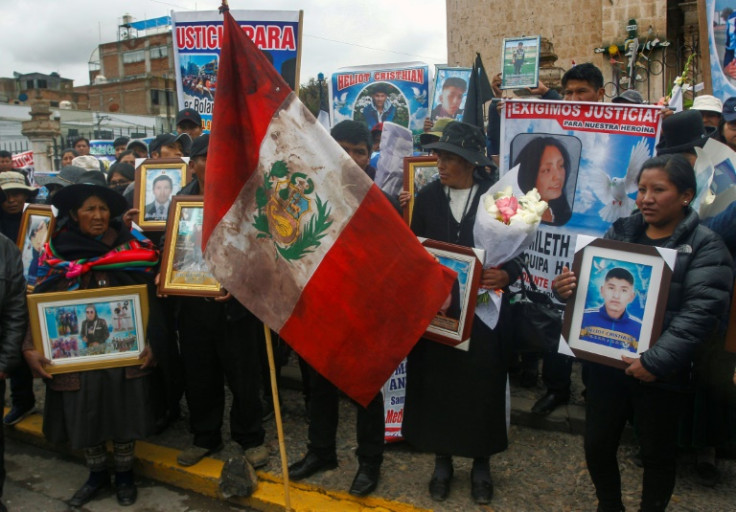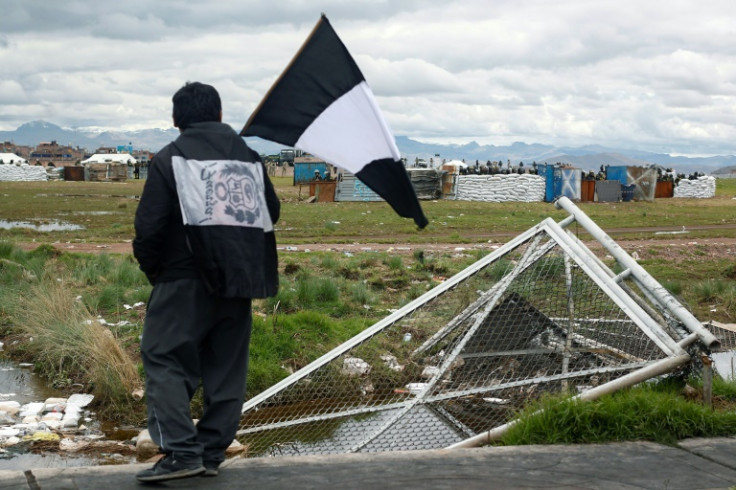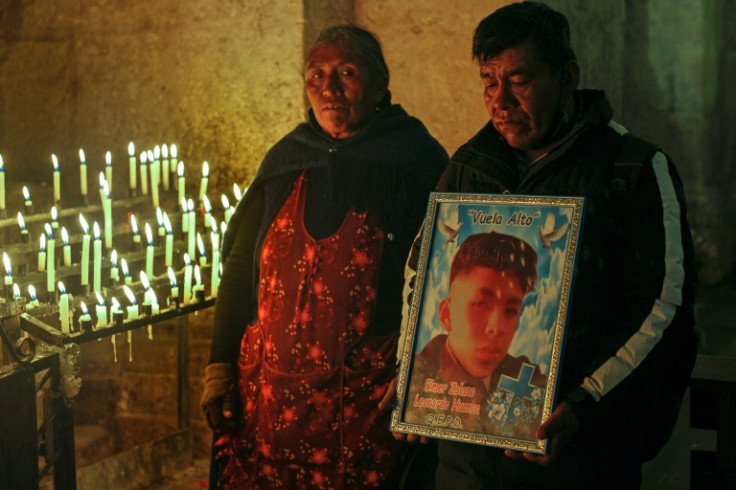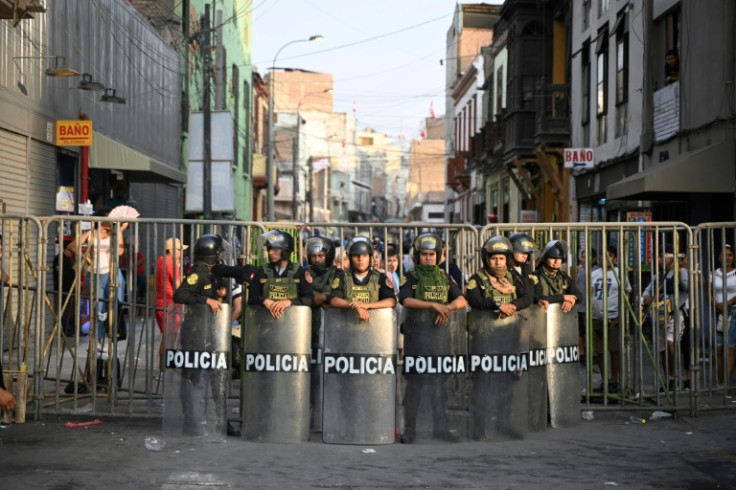Nearly 50 Injured In Peru's Latest Anti-government March

Almost 50 people were injured in Peru in violent clashes between law enforcement and anti-government protesters outside an airport Thursday, a month after 18 demonstrators were killed at the same location.
A march had been organized in the city of Juliaca, Peru's southern Puno region, to demand justice for the 18 civilians killed on January 9, but it turned violent when protesters again tried to enter the Inca Manco Capac airport.
Twenty-three protesters sustained injuries -- including three minors -- one of whom had a gunshot wound to the leg, a local medical agency reported.
The national police tweeted that 25 officers were injured in the clashes.
Peru has been shaken by two months of protests by supporters of former president Pedro Castillo, who was impeached and arrested after attempting to dissolve parliament and rule by decree.
Protesters demand that Castillo's successor, Dina Boluarte, step down and that fresh elections be held.
In Arequipa, also in the south, hundreds of people marched Thursday to the Plaza de Armas square.
There were also protests in Ayacucho and Pucallpa.
Further north, in the capital Lima, some 2,000 workers of the main Peruvian union, CGTP, marched without incident through the streets towards the heavily-guarded Congress.
Earlier in Juliaca, hundreds had gathered for a march that combined cries of grief, anti-government slogans and protest chants.
"Spilled blood will never be forgotten," rang a message addressed to Boluarte as grieving relatives dressed in black held up photos of dead protesters.
"They took my son from me by murdering him," Faustina Huanca, a 57-year-old informal vendor, told AFP.
"Two policemen shot me at close range," said Diego Quispe, a 34-year-old freelance worker. "I have more than 70 pellets all over my body, (the doctors) could only extract eight in the first surgery."
At least 47 civilians and one police officer have been killed nationwide in clashes since the protests broke out, according to Peru's human rights ombudsman.
Protesters have blocked roads, causing shortages of key food items, gas and other necessities in many parts of the country.
Sixty-two national roads remained blocked as of Thursday, according to officials.



© Copyright AFP 2024. All rights reserved.







